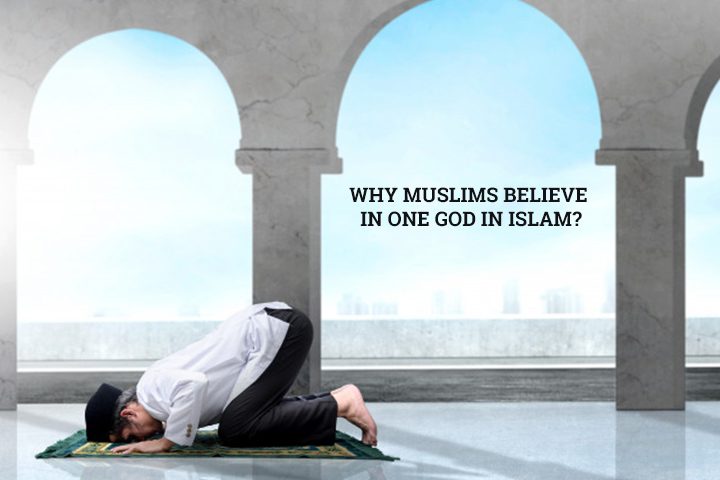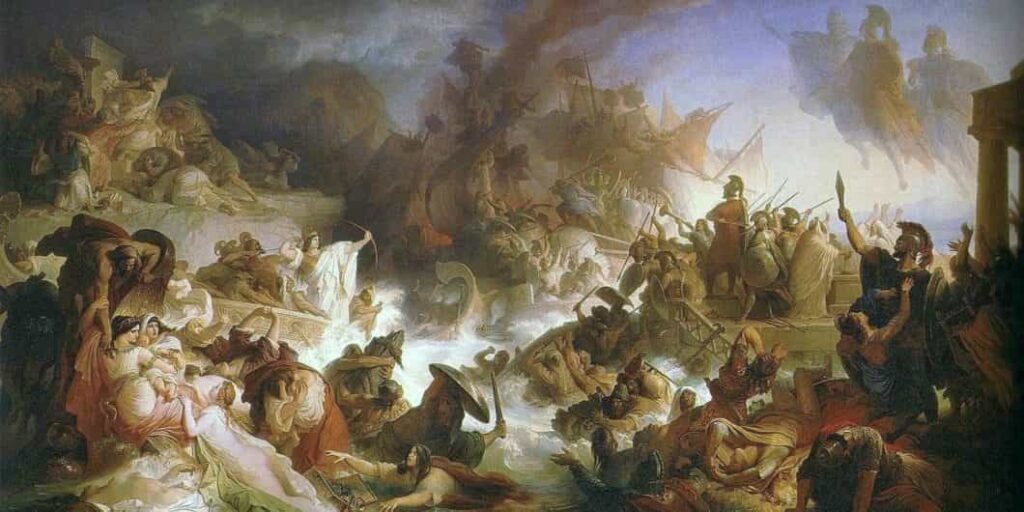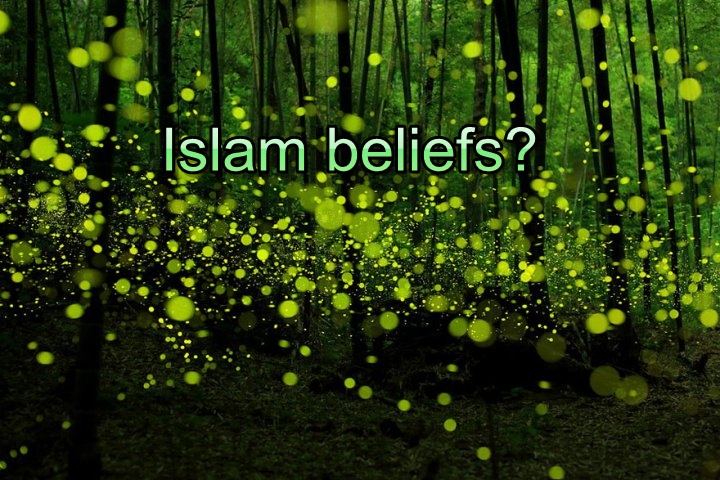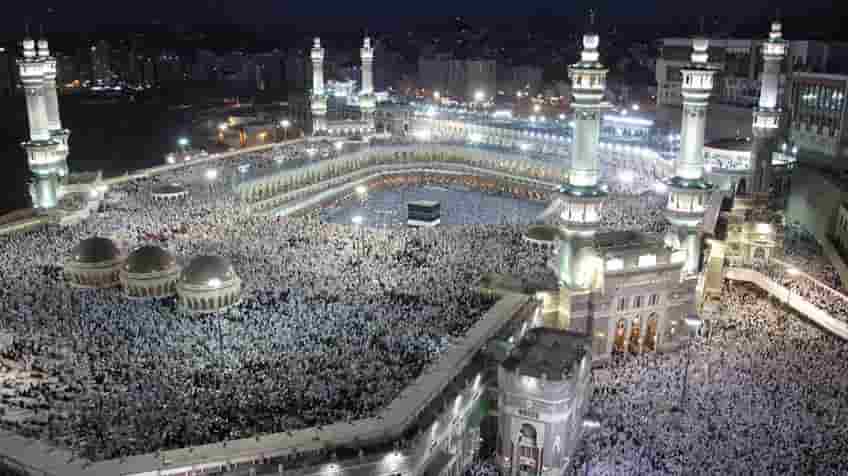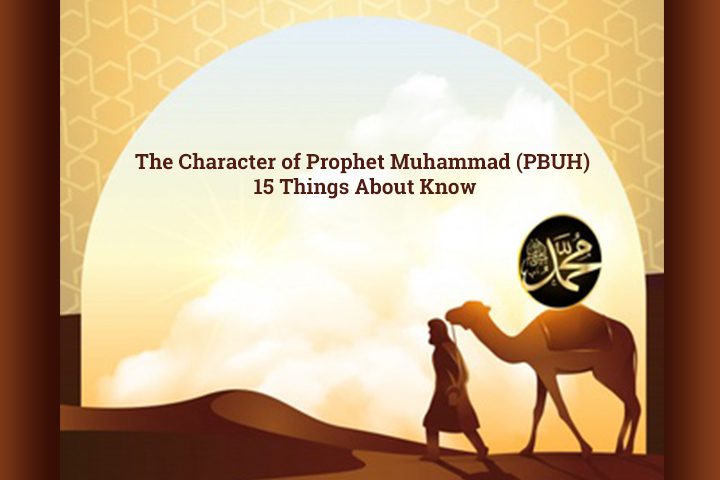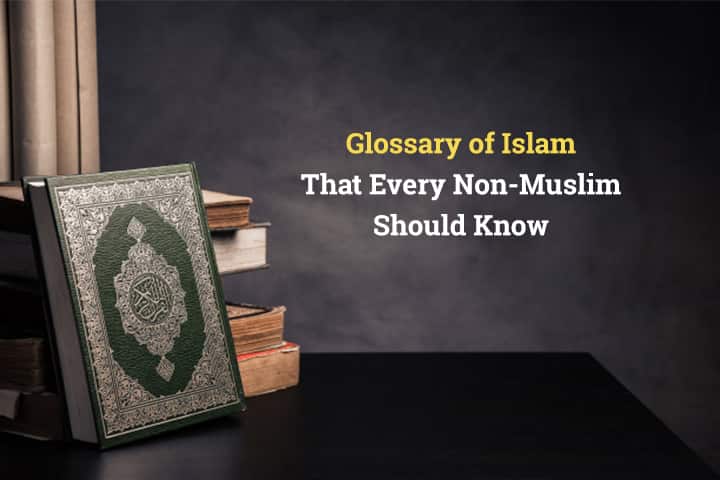Why the name god came into existence in Islam?
Knowledge of God’s existence is often taken for granted by believers. The authentic religious experience—affirmed again and again in a Muslim’s daily life—makes faith in one god in Islam feel so natural as to be assumed. But belief in God and the quest for existential truth is not an easy prospect for many people, especially in a social environment in which faith is derided as superstition, wishful thinking, or even as a dangerous fantasy. In the Islamic tradition, the case for God’s existence is solid in terms of its rational foundations as well as the purpose, meaning, comfort, and guidance that it gives to our lives.
The Quran inspires conviction by appealing to the aspects of the inner life of human beings, namely, to the heart and the mind. Intuition and experience work in tandem with logic and reason to arrive at a state of certainty in faith. This understanding of conviction is reinforced by modern scientific conceptions. Cognitive scientist Justin Barrett, for example, demonstrates that belief in God—and beliefs more generally—are formed and attained in two ways: 1) non-reflective, intuitive beliefs that result from experience; and 2) reflective, conscious beliefs that result from thought.[1] The human being naturally forms beliefs from these two sources. Similarly, the case for God’s existence in the Quran and Sunnah involves both sources of beliefs: heart-based appeals based on intuition and mind-based appeals based on rational reflection.
The Concept of Monotheism
believe in one god The word “Allah” has no plural or gender unlike the word ‘god’ which can be pluralized as ‘gods’ or feminized as ‘goddess’. The Islamic faith depends on one core belief which is that there is no ‘god’ worthy of worship besides Allah. Only he is the maker and sustainer of the whole universe. He begets none nor was he begotten. He is the all-hearing, the all-seeing, the all-knowing and the steadily living. He is the first and the last; the totally benevolent and the particularly kind. This select faith in the one God in islam, Allah, is what is known as Islamic Monotheism. This is a sharp contrast from polytheism which is the faith in various Gods and atheism which is a disbelief in the existence of God or deities.
Say, “He is Allah, [who is] One, Allah, the Eternal Refuge. He neither begets nor is born, nor is there to Him any equivalent.” [Noble Quran 112:1-4]
This monotheistic belief is the thing that Muslims refer to as Tawhid. The Arabic word ‘Tawhid’ abstractly means ” oneness” or “unification.” It is used to refer to the faith in the supreme oneness of Allah. Muslims do not associate partners with Allah.
“Say, ‘Who provides for you from the heaven and the earth? Or who controls hearing and sight and who brings the living out of the dead and brings the dead out of the living and who arranges [every] matter?” They will say, “Allah,” so say, “Then will you not fear Him?‘” [Noble Quran 10:31]
Five times a day in the life of every believer, Muslims worship Allah, reciting the verse;
“It is You we worship and You we ask for help.” [Noble Quran 1:5]
The Quran also says:
“Say, “Indeed, my prayer, my rites of sacrifice, my living and my dying are for Allah, Lord of the worlds. No partner has He. And this I have been commanded and I am the first [among you] of the Muslims.” [Noble Quran 6:162-163]
God’s True Essence – Who is Allah?
At the point when a person goes into the fold of Islam, they acknowledge and affirm their belief that there is no god worthy of worship but Allah and that Prophet Muhammad (Peace and blessings be upon them all) is His messenger.
ASH-HADU AN LA ILAHA ILLAL-LAH, WA ASH-HADU ANNA MUHAMMADAN ABDUHU WA RASULUH
But the question that pops up in the mind of the average person is “Who exactly is the one God, Allah” and “What is the implication of declaring one’s faith in Him?”
“Allah is the creator of all things, and He is the guardian and disposer of all affairs. To Him belong the keys to the heaven and the earth: and those who reject the signs of Allah, – it is they who will be in loss.” [Noble Quran 39:62-63]
The implication of this is that He is of a different nature from His creations, for if this were not the case, it would mean that He, like His creations, is temporal and not eternal. His eternal nature implies that nothing caused Him to exist and this means that He is also self-sufficient.
“He is the First and the Last, the Ascendant and the Intimate, and He is, of all things, Knowing.” [Noble Quran 57:3]
In order to build a strong faith in the existence of the one true God, the Quran instructs Muslims to look around them for signs of His existence, particularly in the natural environment. The perfect and simultaneous workings of every component of the world and the patterns of life are ‘signs for those who believe in one god.’ The universe is in perfect order, the cycles of life and death, the seasons of the year, the mysteries of the human body, the aquatic and terrestrial worlds; these are all flawlessly organized. They are not random. The world and everything in it has been created with a perfect plan by the one true God, Allah.
“And there is no creature on earth but that upon Allah is its provision, and He knows its place of dwelling and place of storage. All is in a clear register.” [Noble Quran 11:6]
Having a sound knowledge of the true essence of God is crucial to the practice of Islam. The belief in the unity of God is thus the essence of the message of Islam which all the Prophets brought.
Worship of God alone and no one else
The Quran, the holy book of Islam, reminds us of the falsity of all alleged gods. To the worshippers of man-made objects, it asks: ‘How can you worship things you carve with your own hands, when it is God who has created you and all your handiwork?’ (37:95-96)
Muslims’ Submission to God
Having accepted this understanding of the one God in Islam, Allah, it is expected that Muslims constantly have faith in Him and remain steadfast upon the truth. When the believer’s heart is filled with true faith, it positively shapes his/her entire life. It also fills the heart with true love of the creator and a sense of gratitude – a feeling which cannot be described. one god in Islam, The true believers accept everything God wills, knowing all their good deeds are nothing compared to His divine favour upon them. This is not a whole new way of life. It is just the final message which confirms the same fundamental beliefs that were sent to humanity through all the messengers.
These are the same principles contained in the Torah sent to Moses and the Gospel sent to Jesus. It is an invitation to the truth; a call to lead a conscientious life in order to achieve eternal success.
“Has the time not come for those who have believed that their hearts should become humbly submissive at the remembrance of Allah and what has come down of the truth? And let them not be like those who were given the Scripture before, and a long period passed over them, so their hearts hardened; and many of them are defiantly disobedient.” [Noble Quran 57:16]
Conclusion:
believe in one god according to Muslims, God is one who is the creator for all living things in the world. He is the most powerful of all and knows & guides everything according to his willness. Worshipping that one god (in other words following one leader) will create unity among the community. With that said people in the society will have an everlasting harmony between them.

